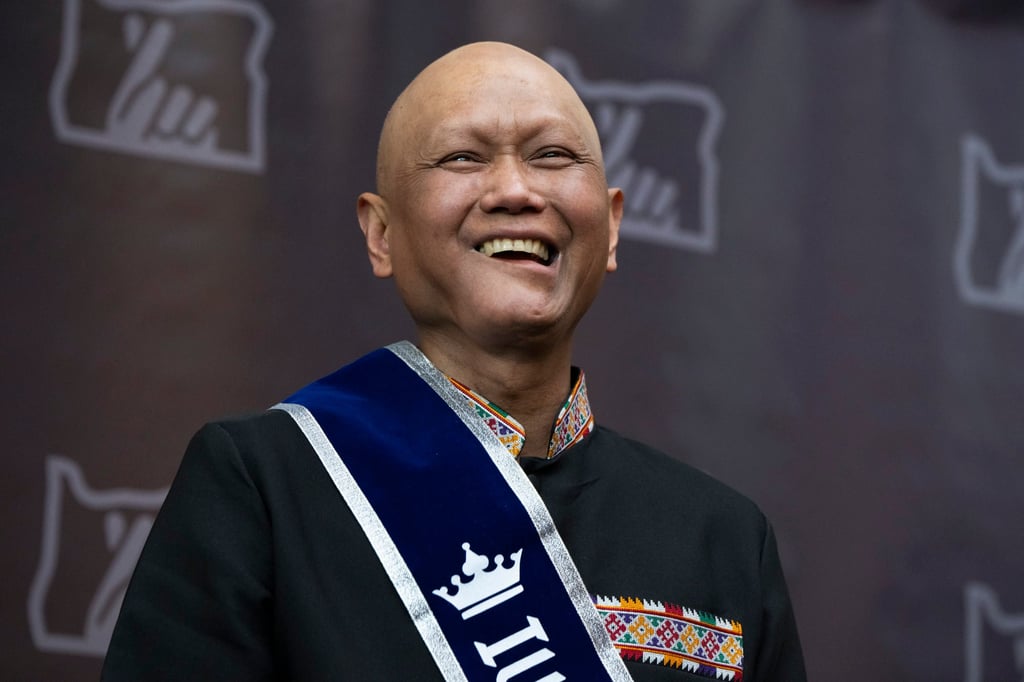US$1.3 billion Powerball win draws attention to Laos’ ethnic group from China – the Iu Mien people
- The winner of the Powerball jackpot is an immigrant from Laos, who identifies as a member of the Iu Mien, a southeast Asian ethnic group originally from China
- ‘I am born in Laos, but I am not Laotian,’ Cheng ‘Charlie’ Saephan said on Monday where he was revealed as one of the winners of the US$1.3 billion jackpot

Cheng “Charlie” Saephan wore a broad smile and a bright blue sash emblazoned with the words “Iu-Mien USA” as he hoisted an oversized cheque for US$1.3 billion above his head.

After the conflict as well as the Laotian civil war, when the US-backed government of Laos fell in 1975, they fled by the thousands to avoid reprisals from the new Communist government, escaping by foot through the jungle and then across the Mekong River into Thailand, according to a history posted on the website of Iu Mien Community Services in Sacramento, California. More than 70 per cent of the Iu Mien population in Laos left, and many wound up in refugee camps in Thailand.
I take pride in seeing our members of the community advance and flourish, and I just feel so good for him
There are now tens of thousands of Iu Mien – pronounced “yoo MEE’-en” – in the US, with many attending universities or starting businesses. Many have converted to Christianity from traditional animist religions. There is a sizeable Iu Mien community in Portland and its suburbs, with a Buddhist temple and Baptist church, active social organisation, and businesses and restaurants.
